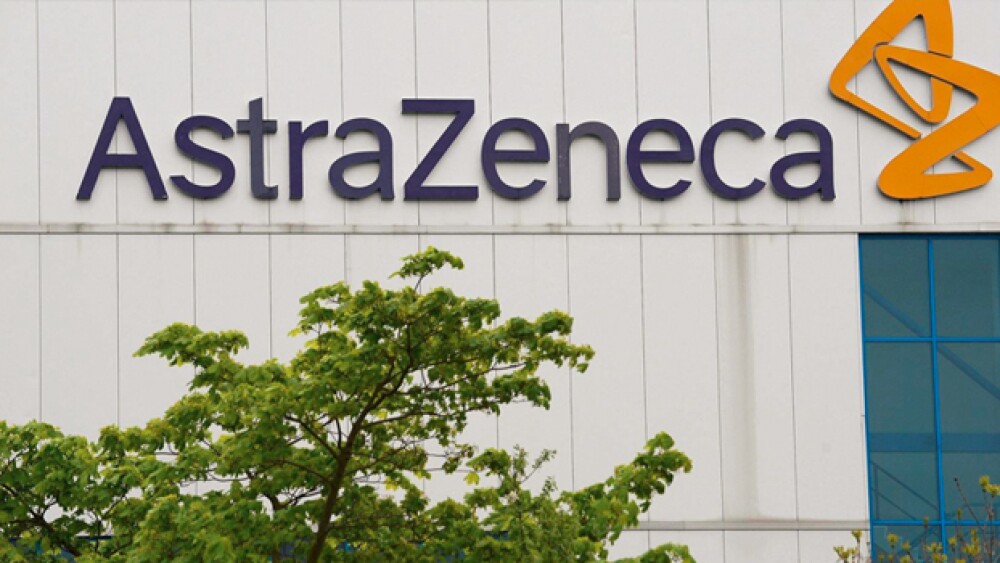During an interim analysis of ELEVATE-TN data, AstraZeneca said Calquence met primary endpoints in patients with previously untreated CLL.
Investigators have ended another trial early after AstraZeneca’s Calquence (acalabrutinib) hit the mark again in a Phase III chronic lymphocytic leukemia (CLL) study. The results have set the stage for AstraZeneca to seek approval of Calquence in CLL.
Following an interim analysis of trial data, the U.K. pharma giant said Calquence met primary endpoints in patients with previously untreated CLL, which is the most common type of leukemia in adults, with more than 20,000 cases diagnosed in the U.S. each year. Calquence in combination with obinutuzumab demonstrated a statistically significant and clinically meaningful improvement in progression-free survival (PFS) when compared with the chemotherapy-based combination of chlorambucil and obinutuzumab, AstraZeneca said. The ELEVATE-TN trial also met a key secondary endpoint showing Calquence monotherapy achieved a statistically-significant and clinically-meaningful improvement in PFS compared to the chemotherapy and obinutuzumab regimen. The safety and tolerability of Calquence were consistent with its established profile.
The ELEVATE-TN trial is an open-label Phase III trial that included 535 patients were randomized 1:1:1 into three arms. Patients in the first arm received chlorambucil in combination with obinutuzumab. Patients in the second arm received Calquence in combination with obinutuzumab. Patients in the third arm received Calquence monotherapy.
This is the second time in about a month’s span that Calquence has demonstrated its efficacy in CLL. In May, AstraZeneca halted the ASCEND trial early after the medication its endpoint at an interim analysis. Similar to the ELEVATE-TN study, ASCEND data showed that Calquence hit the mark in PFS in previously-treated CLL patients. The ASCEND trial marked the first time a Bruton tyrosine kinase (BTK) inhibitor showed a benefit in CLL as a monotherapy. Calquence binds covalently to BTK, thereby inhibiting its activity. In B-cells, BTK signaling results in activation of pathways necessary for B-cell proliferation, trafficking, chemotaxis and adhesion.
“These findings confirm the superiority of Calquence as a monotherapy and also in combination over standard-of-care treatments for chronic lymphocytic leukemia. The positive results from both the ELEVATE-TN and ASCEND trials will serve as the foundation for regulatory submissions later this year,” José Baselga, AstraZeneca’s head of oncology research and development said in a statement.
Calquence is currently approved for the treatment of adults with relapsed or refractory mantle cell lymphoma and is being developed for the treatment of CLL and other blood cancers. When Calquence was first approved in 2017, AstraZeneca Chief Executive Officer Pascal Soriot said the drug would become a cornerstone in the company’s hematology pipeline. Calquence is being evaluated in 26 clinical trials. Calquence is being developed for the treatment of multiple B-cell blood cancers including CLL, MCL, diffuse large B-cell lymphoma, Waldenstrom macroglobulinaemia, follicular lymphoma, and multiple myeloma and other hematologic malignancies.
Much like the data from the ASCEND trial, AstraZeneca plans to present full data from the ELEVATE-TN study at a future conference, possibly the American Society of Hematology meeting in December. AstraZeneca will present full results from the Phase III ASCEND clinical trial in relapsed or refractory CLL as a late-breaking abstract at the European Hematology Association (EHA) Annual Congress later this month.





